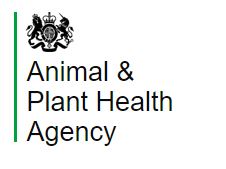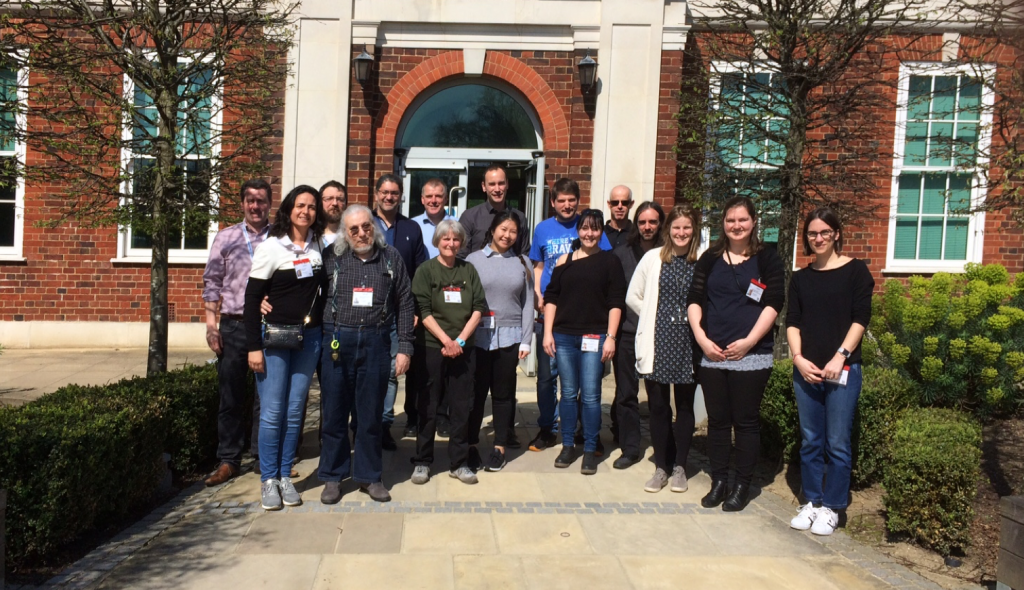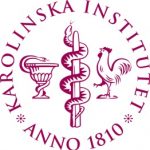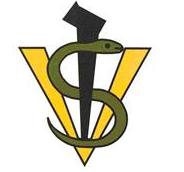About us
Karolinska Institutet
Names of group leaders (PI): Ali Mirazimi
Team members implicated in the project: Cristiano Salata (PhD), Vanessa Monteil (PhD)
Description of the legal entity: Karolinska Institutet is one of the world’s foremost medical universities. As a university, KI is Sweden’s single largest center of medical academic research and offers the country’s widest range of medical courses and programmes. Since 1901 the Nobel Assembly at Karolinska Institutet has selected the Nobel laureates in Physiology or Medicine. Research at Karolinska Institutet spans the entire medical field, from basic experimental research to patient-oriented and nursing research. Research at Karolinska Institutet is conducted in 22 departments, most of which are situated or adjacent to Stockholm’s teaching hospitals. This creates ample opportunities for translational research in which new experimental results are rapidly implemented for patient benefit, and where clinical observations provide a basis for new research ideas.
Description of the groups: At the department of Clinical Microbiology, disease processes in cells and tissues caused by microbes infecting humans are studied. The research is translational with focus on problems identified in clinical care and on the development of improved diagnostics and therapeutic approaches. The research spans from molecular virology, virus-cell interactions and the understanding of individual viral genes and proteins, to the effects these have on the infected patient.
In our research programs, we will examine the molecular pathogenesis mechanism of hemorrhagic fever diseases such as Crimean Congo hemorrhagic fever Virus (CCHFV) and Ebola Disease Virus (EBOV). Increased mobility in the general population and recent climate changes affecting the geographical distribution of viral vectors, combined with animal trade, immigrations and augmented bioterrorism threats, have heightened the risk of emerging viral diseases in Europe. These changing factors highlight the need for understanding the interactions between virus-vector-animal-human in the infection cycle and for the development of new countermeasures such as antivirals and vaccines. Knowledge regarding the pathogenesis of highly emerging viruses such as Viral Hemorrhagic Fever (VHF) is very limited and in some cases completely lacking. VHF diseases are caused by a diverse set of pathogens belonging to different virus families. Some of these viruses cause very severe diseases, with fatal outcomes.
It is obvious that the knowledge of virus biology, pathogenesis, vaccine development and therapeutics is highly limited for these important bio-threat. To achieve a globally effective health program for this disease, there is a need for synergized national and international programs with the capability to perform modern and advanced research. Our projects are focused on multinational/institutional collaboration. The major focus of our projects are i) understanding of the role of innate immune response to molecular pathogenesis of these diseases, ii) to understand Virus-Host cell interaction (animal, insects and human cells), iii) developing vaccines against emerging viral diseases, iv) developing new therapeutic tools against emerging viral diseases and v). Developing new diagnostic tools.
Friedrich-Loeffler-Institut – Germany
Names of group leaders (PI): Franz J. Conraths (Institute of Epidemiology, FLI), Martin Groschup (Institute of Novel and Emerging Infectious Diseases, FLI)
Description of the legal entity: The work of the Friedrich-Loeffler-Institut (FLI) focusses on farm animal health and welfare and on the protection of humans from zoonoses, i.e. infections, which can be transmitted from animals to humans. These tasks are defined in the German Animal Health Act. The FLI carries basic and applied research in different scientific fields. The work aims at: 1) the prevention of diseases by improving rapid diagnostics, improving prophylactic measures, and providing the background for modern control strategies for animal diseases and zoonoses. 2) the improvement of animal welfare and the production of high quality animal-based foodstuffs by improving farm animal husbandry in compliance with animal welfare, preserving the genetic diversity of farm animals, and supporting the efficient utilization of animal feed.
As a federal research institute and independent higher federal authority under the Federal Ministry for Food and Agriculture, the FLI has a consultative function, which helps provide the scientific basis for political decision-making. The institute performs epidemiological investigations during outbreaks of animal diseases. The institute also prepares risk assessments on various infectious diseases of farm animals.
Description of the groups: The Institute of Epidemiology conducts research on the epidemiology of endemic animal diseases, the prevention of non-endemic infectious diseases (import risk assessment, early warning systems) and the biomathematical and epidemiological basis of risk assessment. Using modern epidemiological methods including mathematical models and geographic information systems, we gain insights, which are included into practical animal disease control. Furthermore, the institute fulfils official tasks, particularly in connection with the national animal disease reporting system (TSN) and the project TRACES of the member states of the European Union, and contributes to the development of electronic tools for animal disease management.
The Institute of Novel and Emerging Infectious Diseases works predominantly on vector-borne viral zoonoses caused by flaviviruses (West Nile virus, Japanese encephalitis virus a.o.), alphaviruses (American equine encephalitis viruses), bunyaviruses (Hanta-, Rift Valley fever virus, Crimean-Congo haemorrhagic fever virus a.o.) as well as on hepeviruses (Hepatitis E virus), filoviruses (Marburg, Ebola viruses), henipaviruses (Hendra, Nipah viruses) and on prions. Working with most of these viruses demands higher biological safety standards (L3, L4), which is possible in the new FLI facilities on the Island of Riems. The INNT runs the veterinary national reference laboratoryies for BSE, scrapie, West Nile Fever virus, Japanese encephalitis virus, American equine encephalitis viruses, bunyaviruses (hantaviruses), Rift Valley fever virus, Crimean-Congo hemorrhagic fever virus, filoviruses and henipaviruses.
Institute of Infection and Global Health (IGH), University of Liverpool – United Kingdom
Principal Investigator: Dr Lesley Bell-Sakyi (Senior research fellow and manager of the Tick Cell Biobank, IGH, University of Liverpool)
Team members: Dr Lisa Luu (Post-doctoral scientist attached to the ARBONET project, IGH, University of Liverpool), Dr Rennos Fragkoudis (Senior research fellow in Arbovirus Pathogenesis, School of Veterinary Medicine and Science, University of Nottingham), Dr Paolo Ribeca (Group leader, Integrative Biology and Bioinformatics group, The Pirbright Institute).
Description of the legal entity: The University of Liverpool, founded in 1881, has over 22,000 students on campus (Liverpool, London, Singapore and Suzhou, China) and a further 10,000 plus online students from 160 countries, enrolled in over 400 undergraduate and postgraduate courses. Liverpool is a member of the UK’s “Russell Group” of research-intensive universities, placing it in the top 1% of research institutions worldwide. The University employs over 2000 active interdisciplinary research staff across three faculties and has an annual research income of £144 million.
Description of the groups: The Tick Cell Biobank (TCB) is the world’s only culture collection dedicated to maintaining and generating continuous cell lines from ticks and other arthropods. Founded in 2009, the TCB houses nearly all the tick cell lines established worldwide over the past half century, as well as a collection of intracellular tick-borne bacterial pathogens and symbionts. The TCB distributes tick cell lines and training in their maintenance internationally, and generates novel cell lines from ticks and other arthropods. The TCB has been managed since its inception by Dr Lesley Bell-Sakyi, and is currently funded by the UK BBSRC’s Global Challenges Research Fund.
The Institute of Infection and Global Health (IGH) at the University of Liverpool now hosts the Tick Cell Biobank. IGH has the mission to improve the health of humans and animals by tackling key infectious disease in both a UK and global context. The Institute brings together expertise in veterinary and human infectious disease with a “One Health” vision. The Institute is a major partner in the Wellcome Trust-Liverpool-Glasgow Centre for Global Health Research and the Malawi Liverpool Wellcome Trust Major Overseas Programme, uses research facilities in partner organisations in Malawi, Kenya, Singapore and Brazil, and hosts a National Institute of Health Research (NIHR) Health Protection Research Unit (HPRU) in Emerging and Zoonotic Infections. The Institute comprises >110 academic staff and >150 PhD students.
The School of Veterinary Medicine and Science (SVMS) at the University of Nottingham is dedicated to improving the well-being of animals and people through world-leading innovative research and technology transfer in basic, applied and clinical sciences. Research within the School is divided into six non-exclusive themes including Animal Infection and Immunity, in which the Viruses Group take a collaborative ‘one-health’ approach to research on human and livestock viruses. Dr Rennos Fragkoudis has recently joined the Mertens research group, which uses reverse genetics techniques to study innate and adaptive immunity of arthropod vectors and mammalian hosts to bunyaviruses, orbiviruses, flaviviruses and alphaviruses.
The Integrative Biology and Bioinformatics group at The Pirbright Institute provides expertise in analysing molecular data and collaborates with researchers across the Institute to advance scientific understanding of the biology of viruses and their animal or human hosts. The group develops and maintains the Institute’s scientific computing infrastructure and develops algorithms and computational tools, e.g. for reconstructing transmission trees during outbreaks of animal diseases such as foot-and-mouth disease. The activity of the Integrative Biology group focuses on the application of several modern high-throughput technology to the profiling of virus-host interaction. Bioinformatics tools and integrative methods play a crucial role in extracting relevant information from high-throughput data and interpreting it. The group apply high performance scientific computing to integratively analyse “omics” data in order to advance scientific understanding of biological information and create a principled basis for biosciences.
Agence nationale de sécurité sanitaire de l’alimentation, de l’environnement et du travail (Anses) ‐ France
Name of Group leader (PI) Sara Moutailler (Vectotiq Group, JRU BIPAR), Sylvie Lecollinet (Neurovirology of Zoonoses-NVZ Team, JRU Virology), Houssam Attoui (Team EVIR, JRU Virology)
Description of the legal entity: French Agency for food, Environmental and Occupational Health and Safety (ANSES) is a public organisation depending from the French Ministries of Health, Agriculture, Environment, Labour and Consumer Affairs. The Animal Health Laboratory is involved in (i) developing tools for improved detection and characterization of pathogens in domestic or wild animals, (ii) analysing host‐pathogen interactions to implement new strategies for animal disease prevention (vaccines), (iii) monitoring the emergence of epizootic diseases to prevent their dissemination, and (iv) acting as a Reference Laboratory for most multispecies epizootic/zoonotic diseases at the national and International level.
Description of the groups: The Vectotiq Group, JRU BIPAR, is involved in the development of innovative high-throughput detection techniques to better characterize pathogens transmitted by ticks and mosquitoes (combining typing methods and high throughput approaches using next generation sequencing allowing the detection of microorganisms with and without a priori). We are also specialized in the evaluation of vector competence of different tick species for viruses.
The NVZ Team focuses on equine neurotropic viruses with zoonotic potential, which belong to 3 families, Flaviviridae, Togaviridae and Bornaviridae.
Our research program is developed according to 3 axes:
– Improvement / development of diagnostic tools and epidemiology (reference activities- surveillance, discovery of new pathogens). Special focus on Flaviviruses & Alphaviruses.
– Improvement of our understanding of the neuro-pathogenesis and identification of the molecular determinants of virulence. Special focus on Flaviviruses (WNV, TBEV, ZIKV) and Bornavirus (BDV).
– Identification of antiviral molecules for the treatment of viral encephalitis. Special focus on Flaviviruses.
Within Team EVIR (Viral emergence in ruminants), we work with a range of insect or tick-transmitted dsRNA arboviruses. These include viruses belonging to genera Seadornavirus (e.g. Banna virus), Orbivirus (e.g. bluetongue and Kemerovo viruses) and Coltivirus (e.g. Colorado tick fever and Eyach viruses) within family Reoviridae.
Relevant to the Arbonet project are the following axes of research:
- Studies of virus-vector and virus-host interactions
- Control strategies, particularly antiviral approaches and subunit vaccines
- Evolutionary history of the viruses, including aspects of co-evolution with arthropod vectors.
There has been no publication associated with the Arbonet project so far.
The Istituto Zooprofilattico Sperimentale dell’Abruzzo e del Molise
Names of group leaders (PI): Armando Giovannini, Federica Monaco
Team members implicated in the project:
Armando Giovannini’s team: Daria Di Sabatino (DVM), Maria Luisa Danzetta (DVM), Valentina Zenobio (DVM), Annamaria Conte (Statistician), Carla Ippoliti (Mathematician), Luca Candeloro (Statistician).
Federica Monaco’s team: Gian Mario Cosseddu (DVM), Letizia Di Biase (Biologist), Alessandra Leone (Biologist), Maurilia Marcacci (Biologist), Massimiliano Orsini (Bioinformatician)
Description of the legal entity: The Istituto Zooprofilattico Sperimentale dell’Abruzzo e del Molise (IZSAM) is a public health body contributing to the physical, mental and social wellness of humans by non-stop research and testing within the integrated system for “animal wellness and health – food safety – environment protection.” IZSAM operates as a technical and scientific agency of the State and the Abruzzi and Molise Regions, providing services in the fields of animal health, veterinary public health, and environmental protection, with the aim of safeguarding the health of animals and humans.
The main activities listed in its mission embrace: experimental research on etiology and pathogenesis of infectious and transmissible animal diseases, hygiene of breeding and livestock productions. The IZSAM performs exams for laboratory diagnosis of animal diseases, as well as for the microbiological and chemical safety of food of animal origin intended for human nutrition and animal feed. One of the departments of the institute is charged with the production of vaccines, reagents and immunological products for the prevention and the diagnosis of animal disease.
Among the IZSAM laboratories, the epidemiology lab was recognized as National Reference Centre by the Italian Ministry of Health: National Reference Centre for Veterinary Epidemiology, Programming, Information and Risk Analysis. The Centre’s tasks include, but are not limited to:
- To prepare and draw up surveillance plans, to analyze the resulting data and to publish the outcomes;
- To develop, standardize and promote procedures and protocols for epidemiological analysis and surveillance activities;
- To develop information systems, at the national and international level, for handling data and performing epidemiological studies;
- To plan, project and build web-based geographic information systems (web-GIS) to visualize, inquire and disseminate data and information;
- To conduct risk assessment studies in animal health, food safety, and animal welfare sectors;
- To train veterinary personnel in the fields of veterinary epidemiology and epidemiological surveillance, Statistics and Geographic Information System, both at national and international level;
- To conduct researches and studies in the areas of epidemiological surveillance systems, risk assessment methodologies and the application of innovative data analysis methods, such as those related to spatial and genomic analyses.
Epi lab participates in several European Union research programs, included in the Framework programs, Horizon 2020 and ANIHWA groups of funding.
Description of the groups: The Armando Giovannini’s group work focuses on statistical analysis of epidemiological data, mathematical modelling of the disease spread considering the epidemiology and pathogenesis of the disease involved, spatial factors, and trade networks, and quantitative risk assessment in the sectors of animal health and food safety.
The Federica Monaco’s team work focuses on study of the pathogenesis of exotic diseases, genetics of exotic pathogens and development and validation of diagnostic tools for exotic pathogens.
Kimron Veterinay Institute – Israel
Group Leader (PI): Oran Erster
Description of the legal entity: The Kimron Veterinary Institute (KVI) is operating under the Israeli Veterinary Services, which are a unit of the Israeli Ministry of Agriculture.
The major missions KVI are:
- Develop improved diagnostic tests and perform diagnosis of animal diseases, including poisoning, and common diseases of animals and humans, perform Inspection of animal products, and perform Inspection of animal vaccines.
- Conduct applied research in veterinary medicine and related areas, promote the knowledge on veterinary and zoonotic disease relevant for Israel and promote the dissemination of knowledge among stakeholders and the public in Israel.
The KVI includes five divisions: Bacteriology, Pathology, Parasitology, Avian diseases and Virology.
Description of the groups: The Division of Virology is responsible for diagnosis of veterinary and zoonotic viral disease, for veterinary viral vaccine inspection, and for performing research related to viral veterinary diseases. Approximately 30 different diseases of cattle, livestock, pigs, and horses are routinely diagnosed by the division staff. Imported and local vaccines that are intended for use in Israel are routinely inspected for safety by the vaccine inspection laboratory of the division. In addition to the routine diagnostic and inspection tasks, the researchers and veterinarians of the division are involved in national and international research projects aimed to improve diagnosis, prevention and understanding of viral veterinary diseases relevant for the agriculture and public in Israel. Part of the Division of Virology is located in the KVI BSL3 facility for research and diagnosis of epidemic diseases. In this facility, pathogens such as FMD and avian influenza are diagnosed and studied. This facility is currently unique throughout the Middle East.
Institute Pasteur (Paris, France) and Institute Pasteur of Guinea (Conakry, Guinea)
Project leader (PI): Noël Tordo head of the Antiviral Strategies Unit of the Institute Pasteur (Paris), and Director of the Institute Pasteur of Guinea.
Description of the legal entity: Institute Pasteur (Paris) is a world-known research center which supports a wide spectrum of research activities in the domain of life science. Traditionally, many of its research projects have been focused on the areas of infection biology and immunology (microbiology, virology, infectious desease research), however, nowdays they also cover fundamental topics of cell biology, neurobiology, and developmental biology. The institute consists of 10 research departments, each including from 10 to 20 research units.
Description of the research activities: Antiviral Strategies Unit is part of the Virology Department of the Institute Pasteur (Paris). The unit has a long history of activities in the area of zoonotic virus research, concentraiting mostly on rabies virus (RV) as well as on viruses inducing haemmorhagic fevers in humans (Crimean-Congo hemorrhagic fever virus (CCHFV), Nairoviridae family; Rift valley fever virus (RVFV), Phleboviridae family; Lassa fever virus (LASV), Arenaviridae family; and filoviruses Ebola (EBOV) and Marburg (MARV)). The leader of the unit, Noel Tordo, is a head of a WHOCC for Research and Expertise on Viral Haemorrhagic Fevers and Arboviruses and a member of an OIE Reference Laboratory (OIERL) on RVFV and CCHFV (Institute Pasteur, Paris). Currently he serves as a Director of the Institute Pasteur of Guinea, creating the infrastructure and directing the research projects centered on the survaillance of the zoonotic viruses in West Africa. At present, research efforts of the group concentrate on the establishement and validation of broadly-specific serological tests to investigate the geographic distribution and the host range of zoonotic human pathogens. Currently the group is working on development of a multiplex serological test for simultaneous detection of antibodies to different emerging zoonotic viruses in animal and human serum samples in Guinea and neighbouring contries. The test will benefit from MagPix technology, and will employ magnetic flourescent beads covered by recombinant antigens representing immunodominant regions of a panel of zoonotic viruses of interest (CCHFV, LASV, RVFV, EBOV, and MARV). Other research interests and activities of the unit include: (i) discovery and development of new wide-spectrum antivirals for treatment of diseases caused by highly pathogenic Negative Strand RNA Viruses (NSRV, Rhabdo-, Bunya-, Paramyxo-, Filo-viridae); (ii) investigative work on hemorrhagic fever viruses present in Europe (members of Hantaviridae virus family): (a) development of reverse genetic tools for these viruses and (b) elucidation of molecular and cellular mechanisms that allow them to cross species-specific barriers between rodents (insectivores) and humans and cause the disease.
 Animal and Plant Health Agency (APHA) – United Kingdom
Animal and Plant Health Agency (APHA) – United Kingdom
Project leader (PI): Nicholas Johnson
Description of the legal entity: APHA is an executive agency of the Department for Environment, Food and Rural Affairs (Defra) of the United Kingdom Government. Its mission is to safeguard animal and plant health for the benefit of people, the environment and the economy. To achieve this it provides a diverse range of services and conducts veterinary investigation, surveillance and research.
Description of the research activities : The Arbovirus Research Team conducts research on zoonotic diseases that are transmitted by mosquitoes and ticks, with a particular focus on those that impact livestock. Current areas of research include the transmission dynamics of mosquito borne diseases including Rift Valley fever virus, bovine ephemeral fever virus and Zika virus, tick-borne pathogen diversity and xenosurveillance for viruses within mosquito blood meals.
Uppdaterad av:
arbonet 2020-08-18









